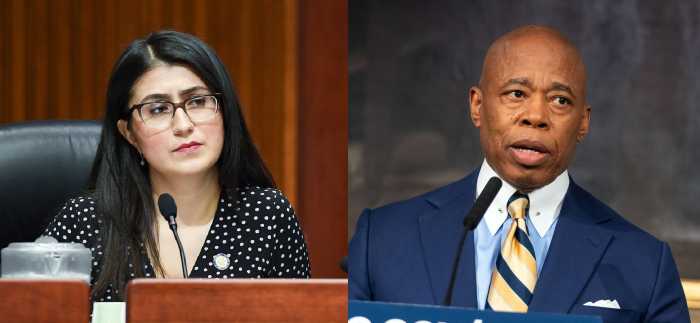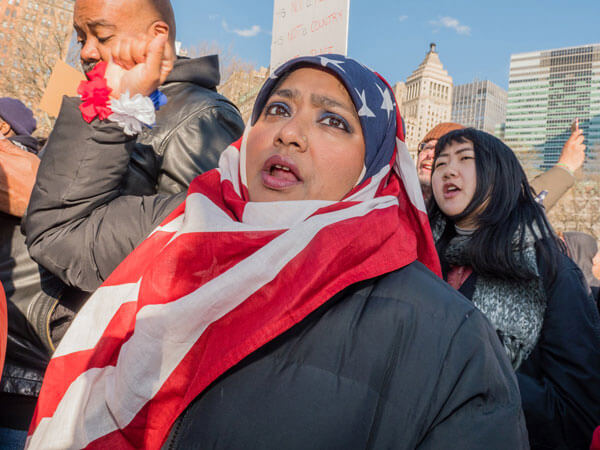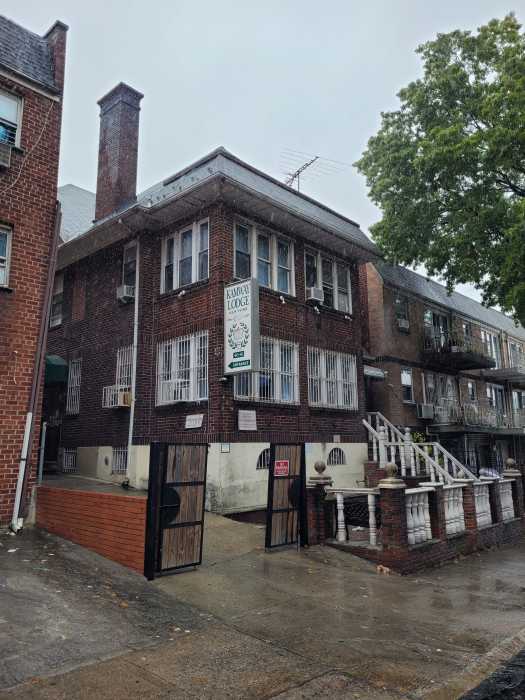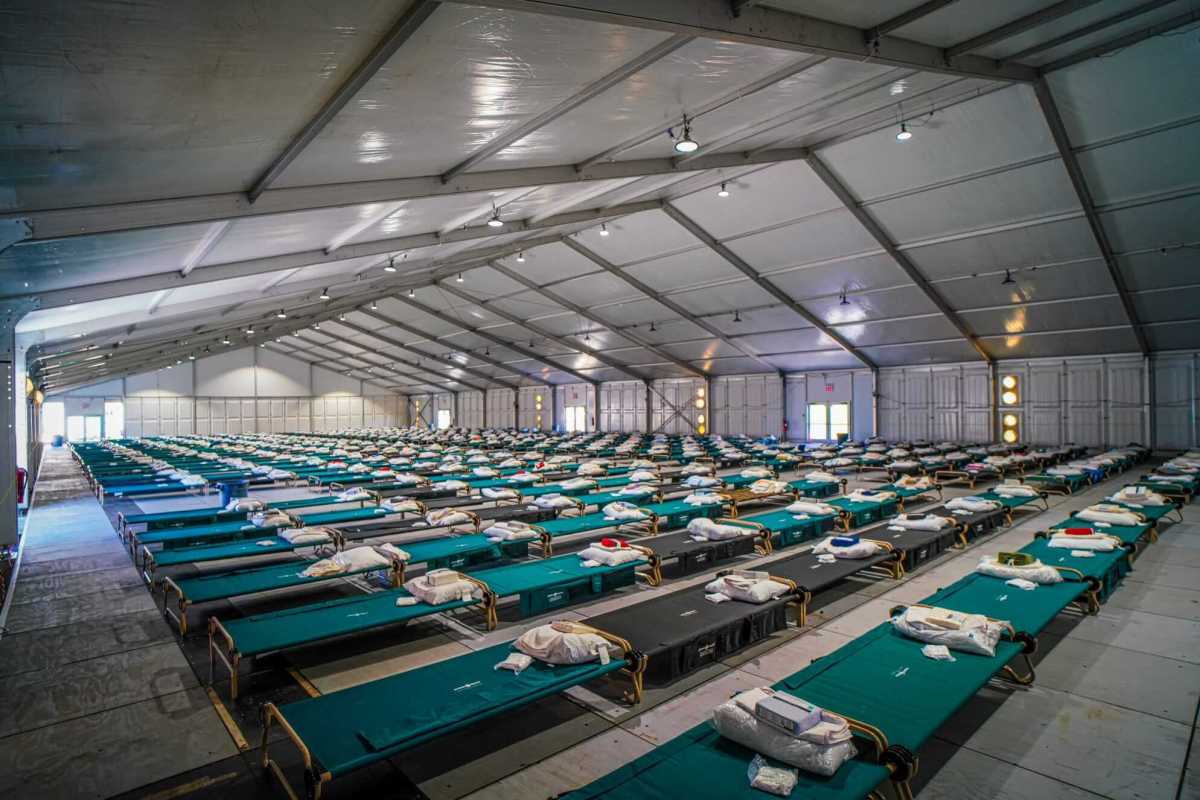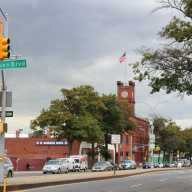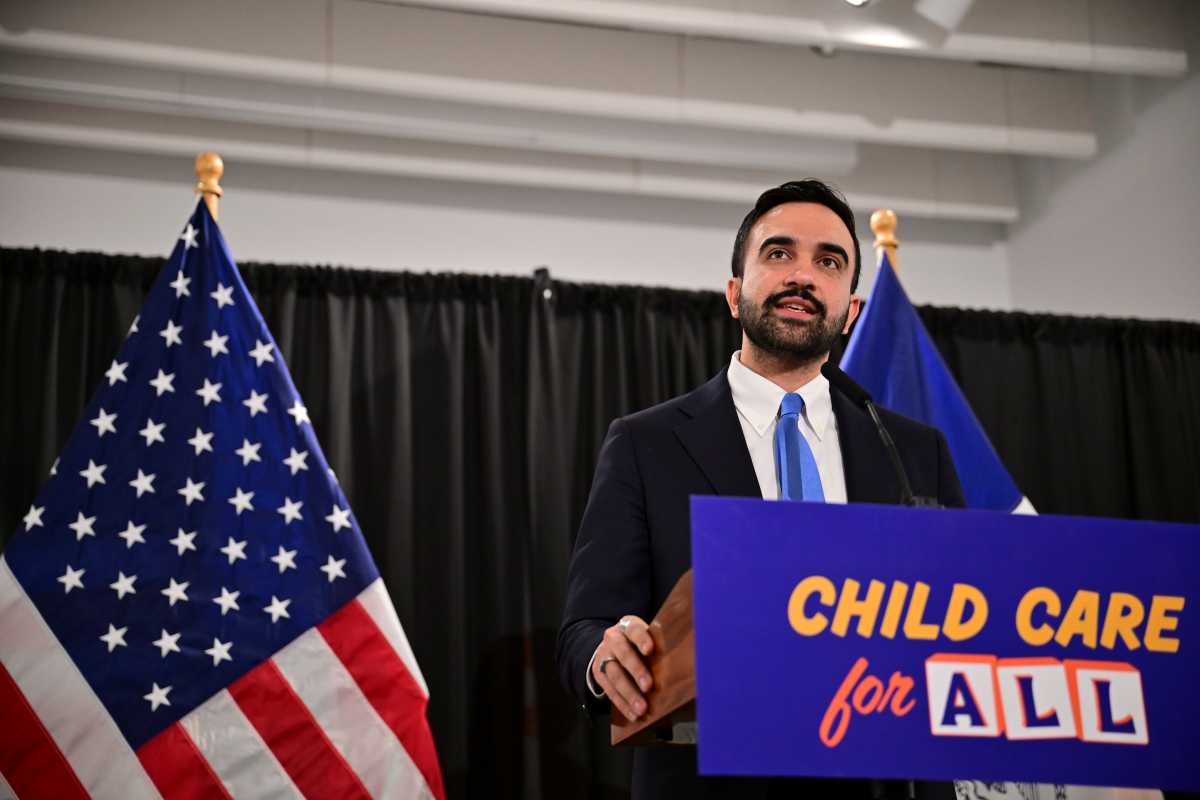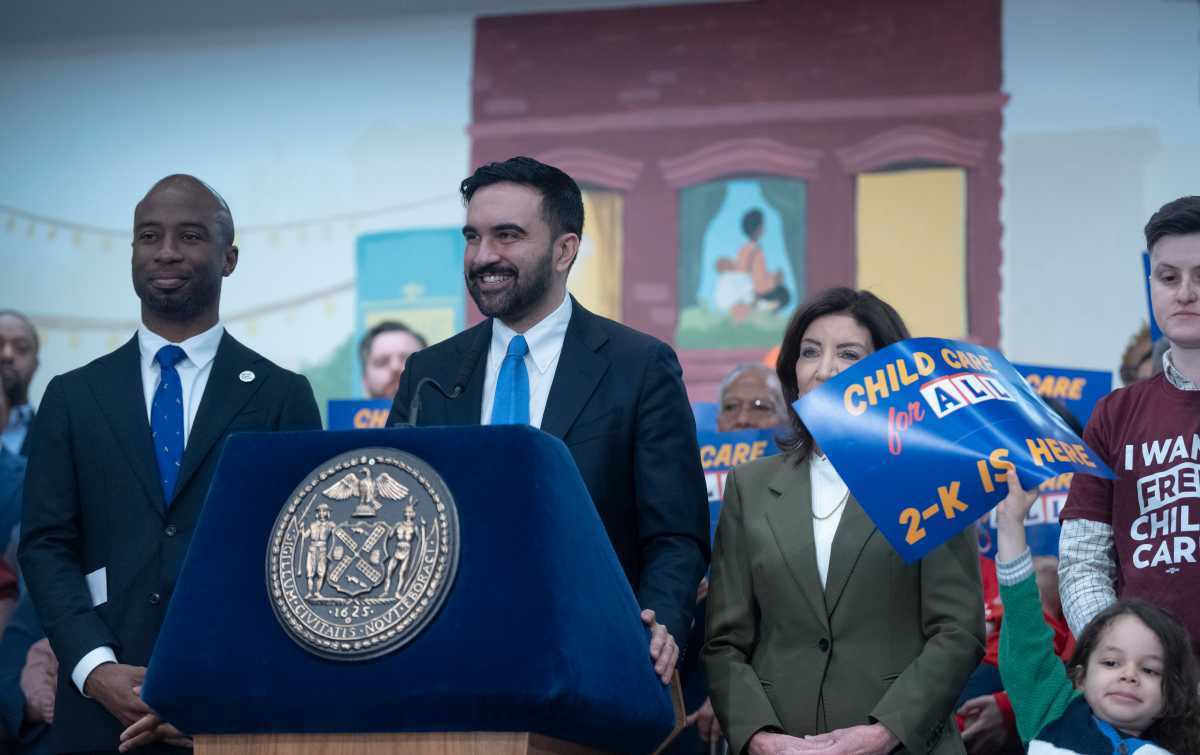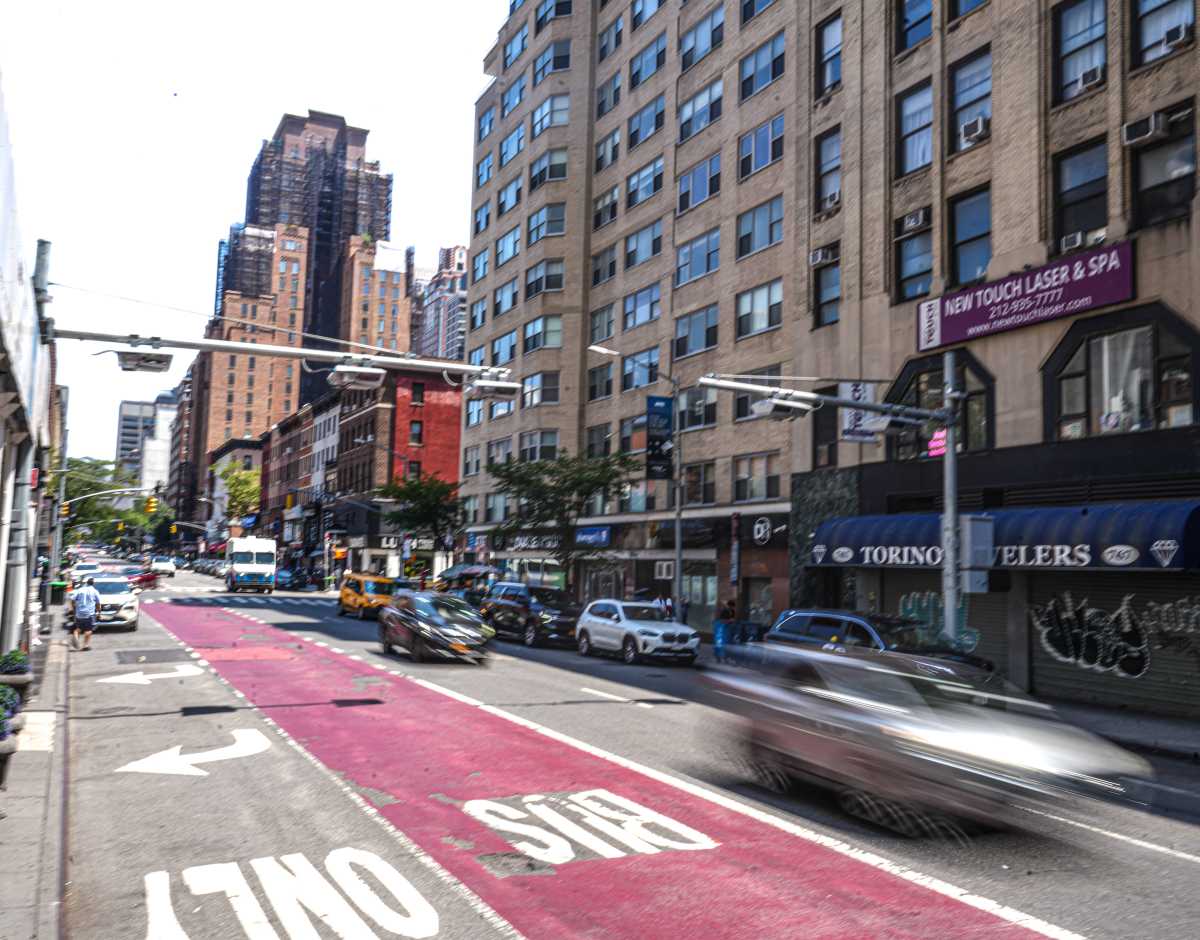As President-elect Donald Trump prepares to take office for a second time next week, migrants, elected officials and immigration groups have voiced their concerns about what a Trump presidency means for New York’s sizeable undocumented immigrant population.
Throughout his campaign, Trump promised to carry out the “largest-ever” deportation program in US history, running on a campaign plank to deport an estimated 11 million undocumented immigrants. In the weeks since his election, Trump has doubled down on his campaign promises, stating that his plan to deport undocumented migrants has no “price tag” and confirming that he would declare a national emergency and use “military assets ” to carry out the deportation program.
For a large section of Queens’ population, such promises have wrought fear and uncertainty, fears enhanced by Mayor Eric Adam’s meeting with Trump’s “border czar” Tom Homan in Manhattan last month and his assertion earlier this week that he would work with the Trump administration to develop a “realistic and compassionate” national strategy on immigration.
By far the most diverse county in New York City, Queens County boasts a large undocumented population, estimated to be above 235,000 people, while 2020 census data found that over 47% of the 2.28 million people living in Queens were foreign-born.
Although New York City is a sanctuary city and limits cooperation with federal agencies such as US Immigration and Customs Enforcement (ICE), numerous undocumented migrants have expressed fears about the incoming Trump Administration, while elected officials and immigration organizations have voiced concerns about the impact that large-scale deportations would have on Queens and the impact that anti-immigrant rhetoric would have on vulnerable members of the immigrant community.
Meanwhile, Adams has repeatedly said that he supports a conservative-pushed rollback of New York’s sanctuary city laws introduced by the de Blasio administration. Adams has since clarified that New York will remain a sanctuary city although he repeated that he remains opposed to policies that prevent the NYPD from cooperating with detainer requests from ICE.
Speaking after his meeting with Homan, Adams said he would cooperate with the incoming administration to clamp down on undocumented migrants who have committed crimes.
“We’re going to protect the rights of immigrants in the city that are hard-working, giving back to the city in a real way. We’re not going to be a safe haven for those who commit repeated violent crimes against innocent migrants, immigrants and long-standing New Yorkers,” Adams told reporters last month.
State Sen. Kristen Gonzalez, representing parts of Long Island City and Astoria as well as parts of Brooklyn and Manhattan, said she has witnessed a significant level of fear among her constituents and called on Albany to prepare for the Trump Administration by passing legislation to further limit cooperation with federal agencies.
Gonzalez emphasized the proposed New York for All Act, which seeks to bar local law enforcement and state agencies from collaborating with federal immigration authorities on enforcement, calling it an essential step toward protecting New York’s undocumented population.
“We’re dealing with a lot of the fear of what a Trump presidency means for New York, and I think the best way for us to combat that is by being prepared,” Gonzalez said. “So, from an Albany perspective, passing bills like New York for All to ensure the state isn’t cooperative with ICE and ensuring that we’re maintaining our sanctuary city and state status are important [steps].”
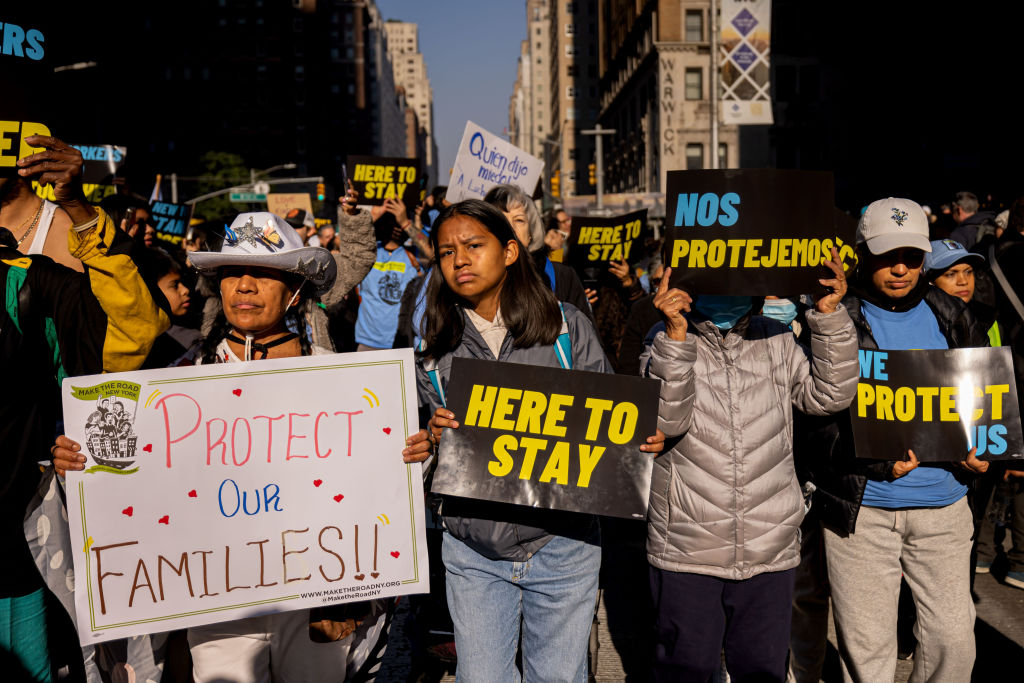
Marlene Galaz, director of immigrant rights policy at the New York Immigration Coalition (NYIC), described Trump’s policies as a “cruel and inhumane” approach to the US immigration system.
Galaz added that NYIC is “prepared to take Trump at his word” over his election promises, stating that immigrant communities are living in fear of a return to the policies that marked Trump’s first term in office. Trump oversaw roughly 1.5 million deportations between 2017 and 2021 and authorized immigration raids at businesses, while he also signed an executive order in 2017 banning people from traveling to the US from six majority-Muslim countries.
Trump, however, deported less people than Obama, who deported some 2.9 million people during his first term in office and a further 1.9 million during his second term, earning the nickname “deporter-in-chief.”
Nevertheless, Galaz is getting ready for Trump.
“We are truly preparing to face some of the issues that we saw during his previous administration,” Galaz said. “The mass separation and deportation of families, which is a threat to not just the life of American families, but to our democracy and our economy.”
On the other hand, Vickie Paladino, a Republican Council Member representing parts of College Point, Flushing, Bayside and Whitestone, said the issue of undocumented immigration was “huge” to the people of New York. Speaking to Fox News before the presidential election, Paladino said the issue would “change people’s minds” at the polls. A CNN exit poll released on election day found that immigration was a top priority for 20% of voters across the country, the second-most prominent issue in the election after the economy.
“We have turned New York City into a third-world country,” Paladino told Fox last October, labelling the influx of migrants into the city as an “invasion.”
Galaz, however, said the anti-immigrant rhetoric associated with Trump’s campaign and presidency could build a climate of distrust among undocumented populations, dissuading people from reporting crimes or seeking medical aid. She said anti-immigrant messaging can also lead to a rise in violence against migrant populations, pointing to a rise in threats of violence against the Haitian community in Ohio after the Trump campaign falsely accused Haitian migrants of eating cats and dogs earlier this year.
“The very recent comments on Haitian immigrants had an actual effect on people,” Galaz said. “They were harassed. They were chased. And it does have a real effect. I am hoping that violence against immigrants doesn’t increase, but we have seen that when vulnerable members of a society get scapegoated, the threat of violence is very real.”
Gonzalez, meanwhile, is concerned that rhetoric against undocumented immigrants expressed at the highest levels of government will directly impact local communities and called for building connections between immigrant communities and the NYPD so that any attacks or hate crimes can be reported.
She also called for preventative measures to be introduced to prevent what she deems as “hateful” rhetoric from being repeated by members of the public.
For example, in a rally before the election, Trump promised to “rescue” the Denver suburb of Aurora from thousands of Venezuelan immigrants. The president-elect labeled the Venezuelan community of Aurora as an “army of illegal alien gang members and migrant criminals from the dungeons of the third world.” In separate campaign rallies, Trump amplified debunked claims, such as accusing Haitian migrants of eating pets in Springfield, Ohio, while he also labeled undocumented immigrants as “animals” and “blood-thirsty criminals” and at various points throughout his campaign.
“While it’s true that we’re seeing hateful rhetoric in the highest forms of leadership and from our future president,” Galaz said. “We can combat that with a lot of political education on the ground, with a lot of tolerance education, and by ensuring that we’re building with the community so that they feel safe and they have everything they need to feel protected.”
Assembly Member Catalina Cruz, who represents New York’s 39th Assembly District, which includes parts of Corona, Elmhurst, and Jackson Heights, also believes anti-immigrant sentiment at the top level of government will translate into a rise in vitriol toward immigrant communities.
“We saw it throughout the campaign,” Cruz said. “I don’t suspect that him having been elected, is going to make things any better or easier.”
Elected officials and immigration organizations believe that Trump’s deportation policies would prove detrimental to the city of New York if the president-elect does achieve his goal of carrying out the largest deportation program in US history.
“These are people who contribute to the economy,” Galaz said. These are people who contribute to the vitality of our communities. They are business owners.”
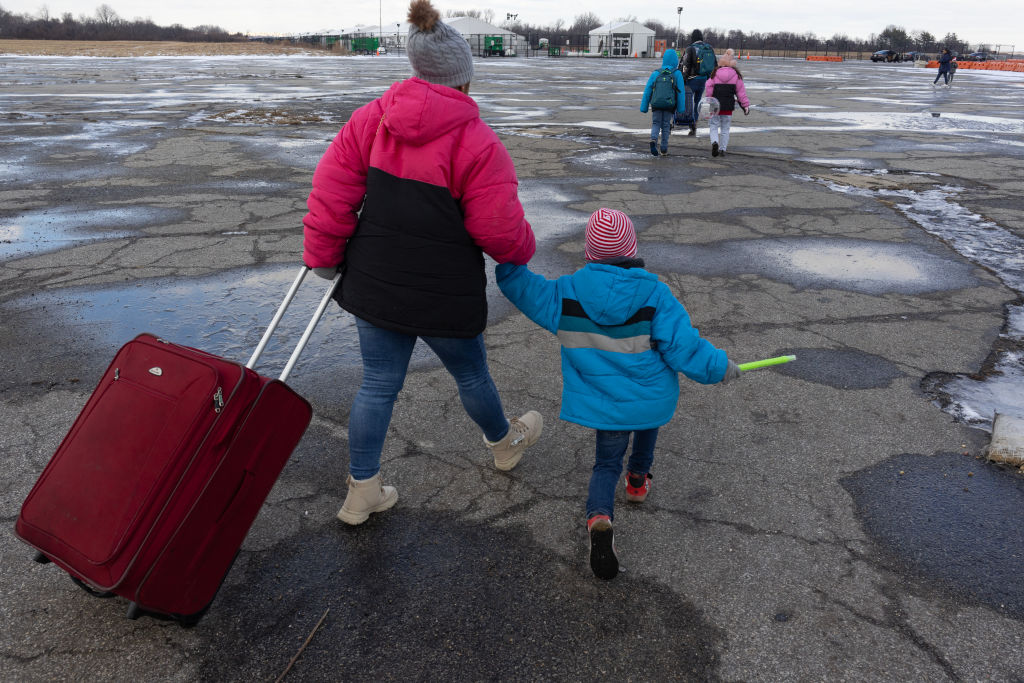
Undocumented immigrants living in Queens expressed fears over the second Trump Administration, voicing concerns about a loss of livelihood and potential deportation as well as a rise in anti-immigrant sentiment.
An Ecuadorian woman who crossed the border without papers two years ago and now works as a subway vendor said she fears selling goods in the subway after Jan. 20 because she believes there will be a crackdown on undocumented migrants working in the subway system once Trump takes office. The woman, who asked to remain anonymous, said she expects her life to change once Trump takes office and fears a loss of her livelihood, stating that she will no longer operate in the subway system because she has heard rumors that the Trump administration will target vendors.
“We’re worried,” the woman said. “Especially with the winter, we don’t know what we’re going to do if we cannot do this type of work.”
A man who also came to the US from Ecuador and asked to remain anonymous said he fears a return to Ecuador because he had to borrow money to travel to the US and has not yet made enough money to repay the loan.
“We are scared because we have to pay and we don’t have money yet,” the man said.
Not all immigrants are concerned about Trump’s second term in office, however. Trump flipped a number of election districts in predominately immigrant neighborhoods of Queens.
Trump made huge inroads in election districts with a significant Latino population, including parts of Jackson Heights, Elmhurst and Corona. Much of the area is located along or near the Roosevelt Avenue Corridor, which has seen growing dissatisfaction among residents due to a rise in crime and prostitution along the avenue, culminating in a number of protests aimed at elected Democrats.
Mauricio Zamora, a Corona resident and activist who has attended multiple public safety rallies in the area, came to the US as an undocumented migrant from Costa Rica around 30 years ago before eventually obtaining legal status through marriage. Zamora voted Democrat in the 2016 and 2020 presidential elections before flipping “100%” to Trump in 2024.
Zamora said his and Corona’s shift to the right during the recent election was a protest vote against local elected Democrats and against the rise in crime in the area over the past few years.
He accused the Biden administration of “opening the borders” and allowing individuals with criminal pasts to enter the US. Zamora claims that the vast majority of undocumented immigrants living in the area are hard workers and good neighbors but said a number of immigrants who have recently arrived in the area do not respect the law or the neighborhood.
Zamora said he voted for Trump because he believes that the President-elect will focus on deporting migrants who have committed crimes. He does not believe that Trump’s election promises to deport millions of undocumented immigrants are possible.
“He said he was going to deport people without documents who have broken the law,” Zamora said, reflecting dissatisfaction with a rise in crime in the local area.
Meanwhile, immigration groups and attorneys have also warned that asylum seekers and migrants with temporary visas will face difficulty during Trump’s second term in office.
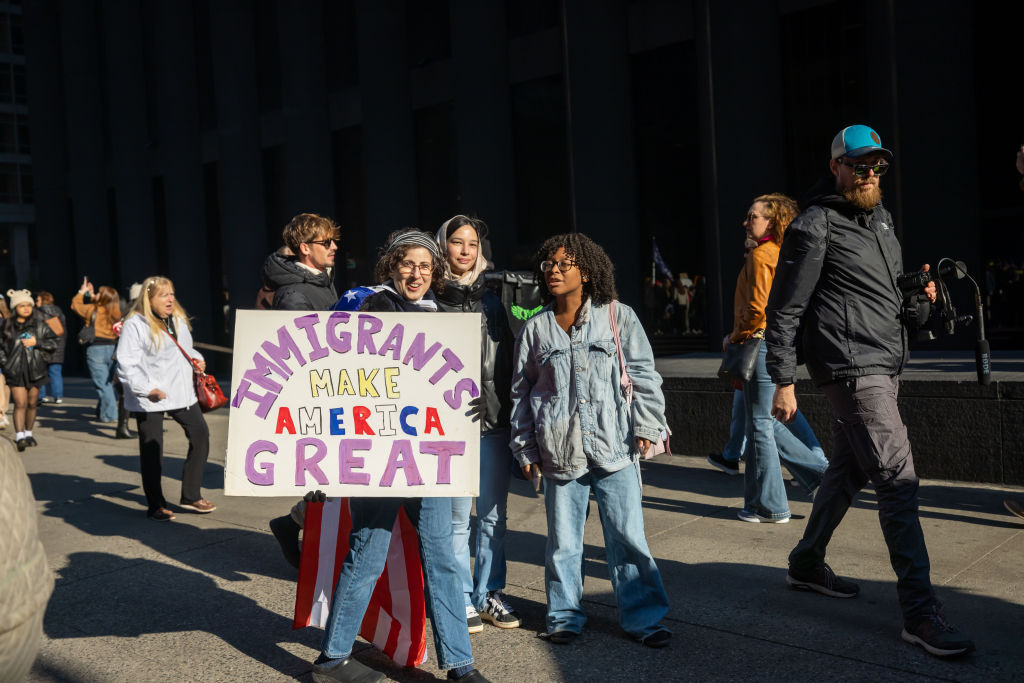
Galaz accused Trump of targeting the asylum system in the past, stating that she expects the President-elect to appoint judges who will vilify asylum seekers and make it more difficult for people to enter the asylum system. Queens is home to a vast number of newcomers—many classified as asylum seekers—with around 66 migrant shelters located throughout the borough.
A 2020 Human Rights Watch report noted that Trump’s asylum policies created “insurmountable procedural barriers, evidentiary burdens, and qualification standards” for those seeking asylum, raising the bar to ensure that applicants would have to prove that a “gun was held to their heads” in order to qualify for asylum.
Gonzalez said the US asylum system is already so complex that it prevents huge numbers of migrants from applying for asylum and expects to see even fewer people applying for asylum once Trump takes office. A recent report by the American Immigration Council states that those seeking asylum in the US must “navigate a difficult and complex process that can involve multiple government agencies.”
“Unfortunately, seeking asylum or claiming asylum is incredibly difficult, and there are only a small percentage of those cases that are successful,” Gonzalez said. “It still was incredibly difficult even under the Biden presidency, but I’m sure it’s going to become increasingly difficult when Trump returns to Office.”
Immigration attorneys have also predicted a rise in difficulties for migrants on work visas living in Queens.
A Manhattan-based immigration attorney, who asked to remain anonymous out of fear of retribution, pointed to the fact that H1-B visa approval rates dropped from 97% under the Obama administration to 75% under Trump’s presidency. The visa, which is awarded to foreign nationals who perform services in a specialty occupation, is one of the most sought-after work visas and is the largest work visa category in the United States.
“It’s still a high success rate, but it definitely did change,” the attorney said.
Trump also altered the renewal process for O1-B visa renewals, the attorney noted. The visa, which is issued to non-nationals of “extraordinary ability,” is valid for three years when it can be renewed. Under previous administrations, United States Citizenship and Immigration Services (USCIS) granted renewal deference to anyone applying for a visa extension because they had already proved that they met the standard with their original application.
However, the attorney noted that Trump implemented changes requiring anyone applying for a renewal to prove they met the same standard the second time.
Galaz also believes that the Trump administration will aim to target the documented migrant population during his next term in office.
“We are really going to see an attack on all immigrants,” she claimed. “It’s not only the undocumented population that we are concerned about, but rather all immigrants.”
Galaz, however, believes that Trump will not have the capacity to deport tens of millions of undocumented immigrants in just four years but said NYIC remains concerned about the number of people who will be detained and deported during Trump’s second term in office.
“The fact that their numbers are unrealistic doesn’t mean that it’s not going to have a real impact on people. What we’re really concerned about also is the chilling effect that this is going to have on our communities.”

Meanwhile, Make the Road New York, a non-profit advocating for immigrant communities, issued a statement shortly after the election stating that the US has long represented a safe haven for immigrants and said Trump’s victory represented a betrayal of long-standing American values.
“Ours is a country that—since its earliest days—has served as a haven for anyone coming in search of a better life for themselves and their families. To see that value betrayed is a slap in the face of generations of immigrants who have made this nation what it is,” Theo Oshiro, co-executive director of Make the Road NY said in a statement following the election.
Make the Road and other immigration groups also expressed outrage this week following the Mayor’s assertion that undocumented immigrants are not entitled to legal protections under the constitution.
Natalia Aristizabal, deputy director of Make the Road, issued a statement Friday accusing Adams of “cozying up” to the incoming Trump Administration.
“Generations of immigrants have made New York the city that it is—full of diversity and beautiful, vibrant neighborhoods,” Aristizabal said in a statement. “These are our neighbors, our colleagues, and our friends. For Mayor Adams to paint undocumented immigrants as criminals is dangerous and offensive, especially from someone with a law enforcement background.”
Before Adams made his assertion, Gonzalez expressed her belief that the Mayor would pose a challenge to efforts aimed at protecting undocumented communities in Queens and across New York City.
“I imagine Eric Adams being a stumbling block, and I do believe that right now we need to be very clear that that is not the direction we want our city going in,” Gonzalez said. “We want to see our city continue to be a sanctuary. We want to see our city continue to protect immigrant communities, and now is the time for folks who are willing and able to get organized and make sure that we’re building collisions to push Adams on this.”


